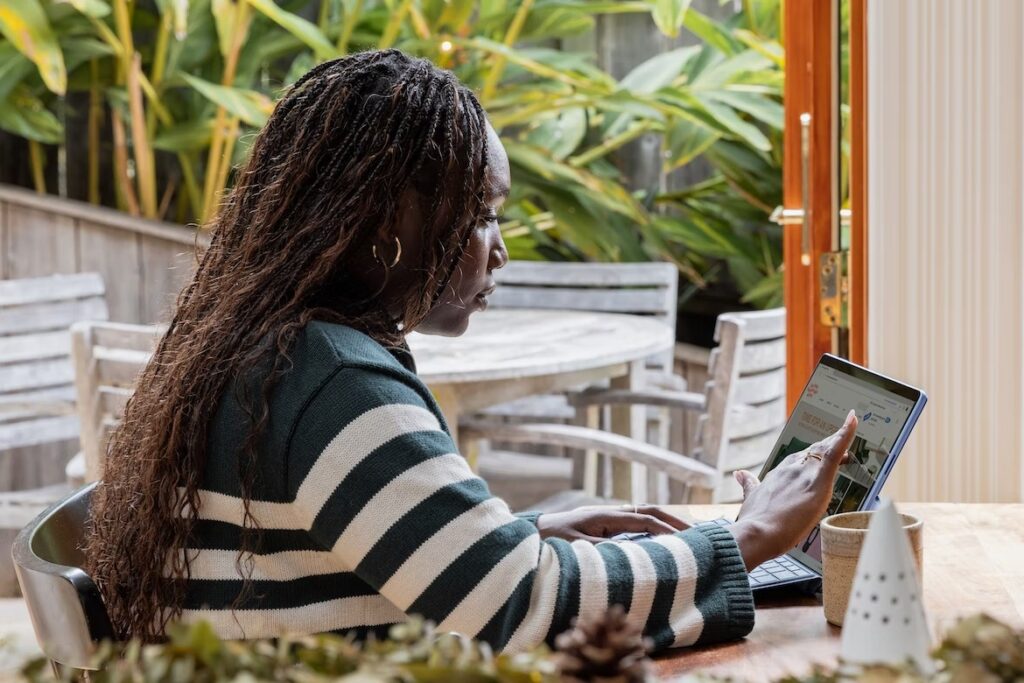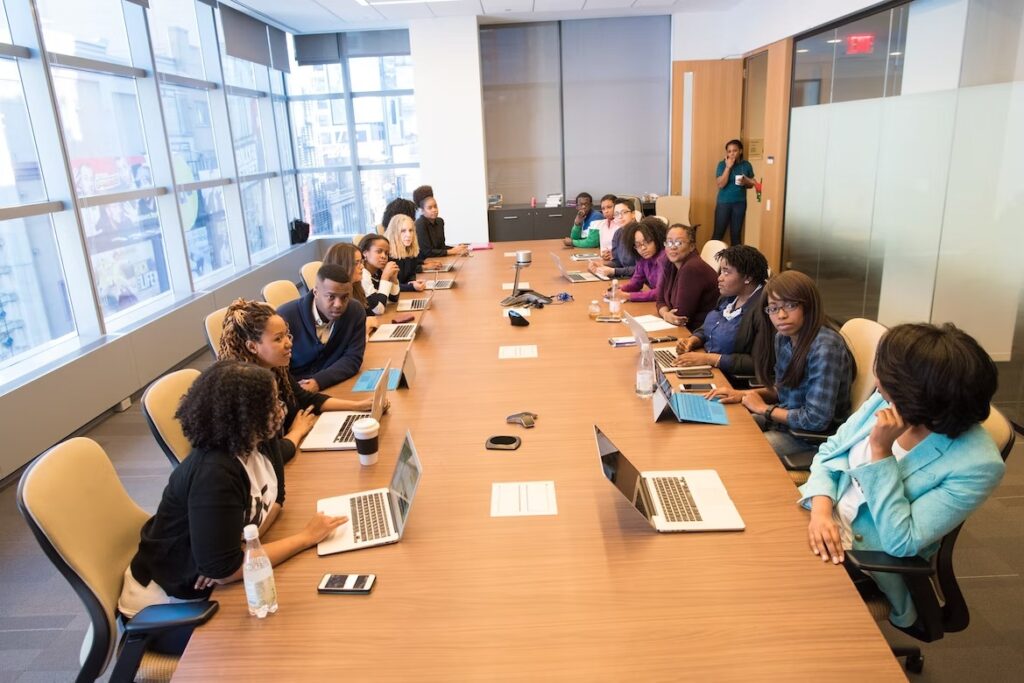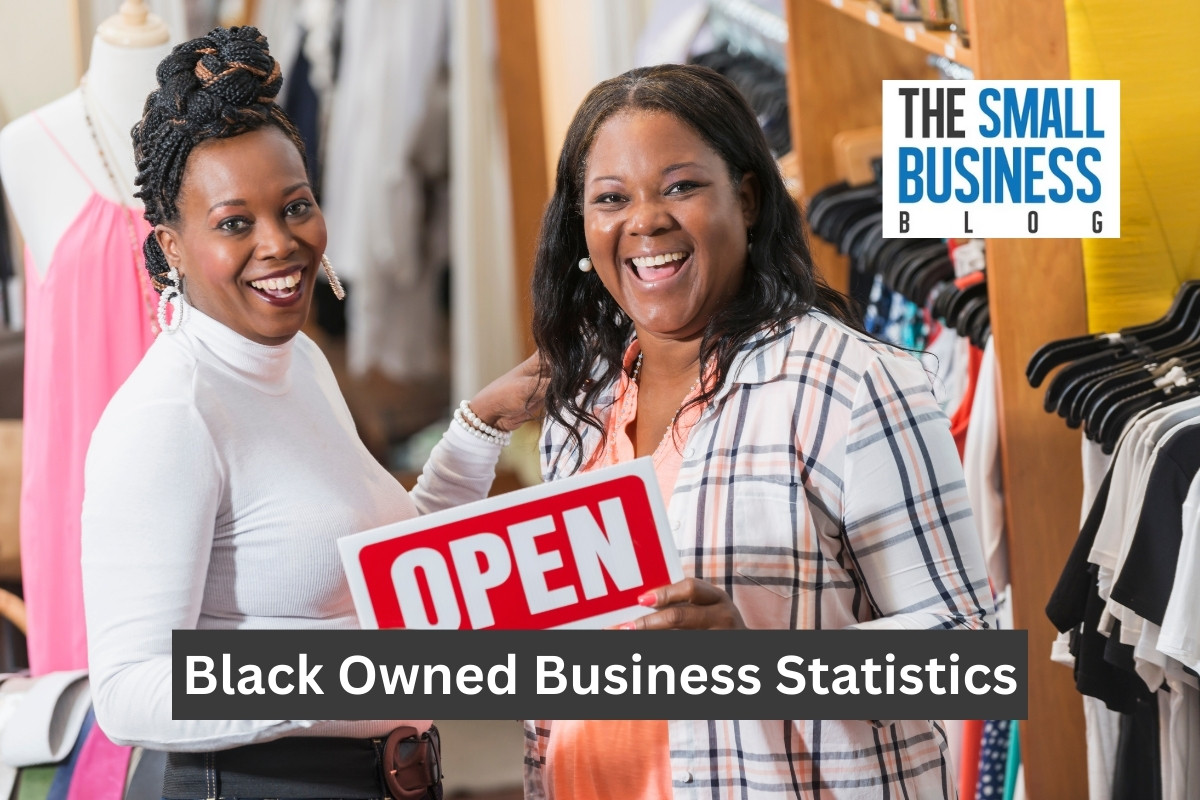While black-owned businesses are growing today in the United States, they still have a way to go to achieve equality.
The following black owned black owned business statistics will enlighten you about the growth in this business segment over the past few years.
What are some drawbacks that cause economic inequality in business?
Besides the regular challenges and obstacles of operating a business, black business owners must also deal with the financing gap, making it more difficult for them to get funding.
There is quite a gap between white and black owned business funding opportunities.
However, on a positive note, the tide inequality of financing and other gaps between white and black owned businesses are turning.
It may still take some time, but it is getting better.
In this article, we will discuss how this impact businesses in the United States.
Let’s look at the statistics for the facts of the matter.
Post Contents
- 1 Key Statistics
- 2 Detailed Black Owned Business Statistics 2024
- 2.1 1. 58% of Black Business Owners Said Their Finances Are Vulnerable or In Jeopardy Post-Pandemic.
- 2.2 2. There Are More than 3 Million Black Owned Businesses in The United States, According to The Latest Data.
- 2.3 3. As of 2021, in 2020, Atlanta, Georgia Had the Highest Percentage of Black-Owned Businesses.
- 2.4 4. Pew Research Revealed that The Largest Share of Black or African American Owned Firms Are in The Social Assistance and Health Care Industries.
- 2.5 5. The Largest Black Owned Company in The United States Is World Wide Technology with Over $2 Billion in Annual Revenue.
- 2.6 6. New York Is Home to The Most Black-Owned Businesses in The United States.
- 2.7 7. A 2020 Guidant Financial Study Showed that 49% of People of Color Were Very Happy with Their Businesses.
- 2.8 8. In 2020, The Silent Generation Accounted for 45% of All Black-Owned Businesses.
- 2.9 9. The Highest Ratio of Black-Owned Businesses Is Found in Washington, DC.
- 2.10 10. Black-Owned Employer Firms Employ 1.3 Million People, as Of 2022.
- 3 Challenges of Black Owned Businesses
- 3.1 11. According to The Women & Minority Business Owner Spotlight by The Bank of America, 46% of Black Business Owners Face Funding Challenges.
- 3.2 12. Racism Is Still Something that Black Business Owners Experience.
- 3.3 13. Business Challenges from The Pandemic Were Harder on Black-Owned Business than Their White Counterparts.
- 3.4 14. Only 1% of Black-Owned Businesses Got Business Loans in Their First Year of Operation.
- 3.5 15. Black and Hispanic Owned Businesses Receive Less Help Completing Loan Applications.
- 4 Women Black Owned Business Statistics
- 4.1 16. In 2017, Less than 4% of Black Women Were Provided Funding for Their Startups.
- 4.2 17. 35% of Women-Owned Businesses Are Black Owned Women Businesses.
- 4.3 18. The Earnings of Black Women Owned Businesses Are Considerably Lower than Other Women-Run Businesses.
- 4.4 19. The Number of Black Female-Owned Businesses Grew by 50% Between 2014 and 2019.
- 4.5 20.The Bigger Picture Black Womenomics report Shows that Black Women Are Underrepresented in Business.
- 5 Bonus Statistics You Should Know
- 5.1 21. There Are Three Main Metro Areas Where Black Owned Businesses Thrive.
- 5.2 22. Between 2000 and 2021, the Rate of New Black Entrepreneurial Growth Was 28%.
- 5.3 23. Black Businesses Accounted for About 0.5% in The UK for Small to Medium Sized Businesses, SMEs.
- 5.4 24. The Lowest Known Rate of African American Businesses Is in Portland Oregon.
- 5.5 25. Black Businesses Are Known to Create an Average of 10 per Company Among Black-Owned Employee Companies.
- 5.6 26. What if Black Firms Accounted for 14.2% of Employer Firms?
- 5.7 27. In 2020, There Were 1.1 Million Self-Employed African Americans in The United States.
- 5.8 28. Black-Owned Businesses Are More Apt to Hire Black Employees.
- 5.9 29. The Highest Rate of Employee Pay in Black-Owned Businesses Happens in Port St. Lucie, Florida.
- 5.10 30. In 2020, Around 52% of Black Business Owners Were Between 35 and 54.
- 6 FAQs
- 7 Conclusion
- 8 Sources
Key Statistics
- 58% of black business owners said their finances are vulnerable or in jeopardy post-pandemic.
- There are more than 3 million black owned businesses in the United States, according to the latest data.
- As of 2021, in 2020, Atlanta, Georgia had the highest percentage of black-owned businesses.
- Pew Research revealed that the largest share of Black or African American owned firms are in the social assistance and health care industries.
- The largest black owned company in the United States is World Wide Technology with over $2 billion in annual revenue.
- New York is home to the most black-owned businesses in the United States.
- A 2020 Guidant Financial study showed that 49% of people of color were very happy with their businesses.
- In 2020, the Silent Generation accounted for 45% of all black-owned businesses.
- The highest ratio of black-owned businesses is found in Washington, DC.
- Black-owned employer firms employ 1.3 million people, as of 2022.
Detailed Black Owned Business Statistics 2024
For starters, let’s have a peek into the general statistics about black-owned businesses.

1. 58% of Black Business Owners Said Their Finances Are Vulnerable or In Jeopardy Post-Pandemic.
According to a study, black-owned companies that are already strapped financially compared to many of their white counterparts in business, were negatively affected during the pandemic.
In the study, 58% of black-owned firms responded that they were financially at-risk or distressed even before the pandemic compared to 27% of white-owned business owners’ responses.
Also, the pandemic created a situation where 41% of black-owned companies had to close their doors in 2020 from February to April.
Over half of this business ownership demographic are still worried about the businesses’ viability.
(McKinsey & Company, Springer)
2. There Are More than 3 Million Black Owned Businesses in The United States, According to The Latest Data.
According to the U.S. Census Bureau, there are an estimated 3,115,000 African American or Black owned businesses in the United States.
These businesses account for $72.5 billion in receipts.
Of these black-owned businesses, approximately 140,918 have 1.3 million employees and generate $141.1 billion in yearly receipts.
The payroll accounted for $42.2 billion per year.
(NBC Select, U.S. Census Bureau 1, U.S. Census Bureau 2)
3. As of 2021, in 2020, Atlanta, Georgia Had the Highest Percentage of Black-Owned Businesses.
In Atlanta, the percentage of the black population is 34.2%. Of that 34.2%, 7.4% own businesses.
Out of 116.798 total Atlanta businesses, black owned businesses account for 8,663.
This data comes from an analysis of the 2021 U.S. Census Bureau Annual Business Survey by LendingTree.
After Atlanta, Washington, DC (7,933) and Virginia Beach (1,937) rank second and third for the number of black-owned businesses.
(LendingTree)
4. Pew Research Revealed that The Largest Share of Black or African American Owned Firms Are in The Social Assistance and Health Care Industries.
According to the statistics, the most common black owned business category is health care, with 32% within this industry.
Following health care, black-owned businesses including social assistance, technical, scientific, and professional services, respectively.
In fact, 41.4% of all black-owned businesses are within the social assistance and health care industries.
This makes them the majority in these industries at 27.5%.
Out of 657,819 health care and social assistance businesses 38,819 are black-owned.
While these industries make up 11.4% of all businesses, in the black-owned business demographic, it makes up 27.5%.
(LendingTree, Pew Research)
5. The Largest Black Owned Company in The United States Is World Wide Technology with Over $2 Billion in Annual Revenue.

Only a few of the black owned businesses in the United States generate billions each year.
However, there are several that generate millions each year.
The global technology firm, World Wide Technology, is the biggest company owned by African Americans in the country.
An example of a company owned by people of color is GlobalHue, which generates over $480 million just in 2007.
A nationwide chain car dealer, RJL McLarty Landers Automotive Group, generated over $540 million in 2007.
(Black Business)
6. New York Is Home to The Most Black-Owned Businesses in The United States.
While Atlanta, Georgia has the highest percentage of black-owned businesses in the United States, New York state is home to the most black-owned businesses in the country.
In New York state, there are 204,093 black-owned businesses.
However, since it accounts for only 10% of the state’s businesses, Atlanta gets top rank for the highest percentage.
The most recent data from LendingTree shows Washington, DC in second place in the percentage of black-owned business with 7.0%, which is just shy of 0.4% from Atlanta’s 7.4%.
These percentages are calculated against the percentage of African Americans or Blacks living in the United States.
(Black Business, LendingTree, Score)
7. A 2020 Guidant Financial Study Showed that 49% of People of Color Were Very Happy with Their Businesses.
In fact, if you add up those who responded that they were somewhat happy and those who were very happy, it accounts for a whopping 74% of happy business owners among black owned business owners.
In contrast, only 7% were very unhappy and 8% were somewhat unhappy.
The neutral percentage accounted for 25% of black business owners.
The largest percentage of responses related to their motivation was that they were ready to be their own bosses.
A large majority of respondents, 72%, said that their businesses were in profit at the time of the survey.
(Guidant Financial 2020)
8. In 2020, The Silent Generation Accounted for 45% of All Black-Owned Businesses.
While the oldest generation that is still working accounts for 45% of the overall black-owned businesses in the United States, 31% of Boomers are lagging only a bit after them.
Just like all business owners, there is a gender gap in the world of black-owned business.
Men outweigh black-owned businesses at 65% compared to 35% for black women.
The gender gap is gradually closing in the overall business world, but there is still much to do.
(Guidant Financial 2020)
9. The Highest Ratio of Black-Owned Businesses Is Found in Washington, DC.
We discusses how Atlanta, Georgia has the highest percentage of black owned business in the nation and that New York state has the most overall black-owned businesses, but the highest ratio of black business owners is in Washington, DC.
The state of Georgia comes in second with a 20% ration, which is just shy of the 28% of Washington, DC black business ownership.
Maryland comes in a strong third place with a ration percentage of 19%.
(Black Business)
10. Black-Owned Employer Firms Employ 1.3 Million People, as Of 2022.

Out of all black business owners, only 140,918 hire employees to work for them.
So, out of the 3 million black-owned businesses, a small percentage are considered employee businesses.
This is 2022 data from the United States Census Bureau, which also reveals that the 140,918 black-owned businesses generate $141.1 billion in receipts and have a payroll of $42.2 billion per year.
The statistics for non-employer firms are not included in these numbers.
(U.S. Census Bureau 2)
Challenges of Black Owned Businesses
In this section, we will address the challenge that still face black business owners and potential black businesses.
11. According to The Women & Minority Business Owner Spotlight by The Bank of America, 46% of Black Business Owners Face Funding Challenges.
These statistics come with a full set of data related to funding challenges for black businesses.
For instance, 39% don’t feel well informed or qualified for loans or capital.
Likewise, 38% said they have no lender relationships.
Unfortunately, 21% have no idea of where to apply for business capital.
Regarding access to funding, 40% don’t feel that black business owners have equal access.
However, 35% think they do have equal access to capital.
An optimistic 25% believes that equal access to capital business funding will be equal in the future.
According to one survey commissioned by Intuit QuickBooks, 57% of black survey participants said that they had been denied a bank loan at least once when they were starting their businesses.
For perspective, the percentage of non-black bank loan denials are 37%.
Overall, black business owners feel confident that by 2035, the country will enjoy equal access to capital for businesses across all races.
(2022 Women & Minority Business Owner Spotlight, QuickBooks Blog)
12. Racism Is Still Something that Black Business Owners Experience.
Even though the nation has come a long way from the 1930’s to 1950’s, racism still exists in American.
The QuickBooks blog reveals that 79% of black-owned businesses have experience customer-related racism.
This data comes from an Intuit QuickBooks commissioned survey of 1,000 black-owned businesses intended to honor Black History Month.
A whopping 82% of those surveyed claimed to act differently among some vendors and customers to avoid racial stereotype negativity.
On a high note, the survey revealed that 85% of black business owners could pay themselves in 2022.
Despite figures like these from the survey results, most black business owners are optimistic about the future of black-owned business.
(QuickBooks Blog)
13. Business Challenges from The Pandemic Were Harder on Black-Owned Business than Their White Counterparts.
Before the pandemic, only 42% of black businesses were considered stable and healthy, compared to 73% of white businesses.
It’s believed that due to the face-to-face industries where black-owned businesses dominate, long business closures during the pandemic were created.
Some haven’t recovered and some had to close up shop.
A few good statistics to come out of the pandemic include:
- 45% of all American consumers agree that companies should dedicate support to black-owned vendors, brands, suppliers, and businesses.
- 54% of black entrepreneurs surveyed said that the pandemic helped them to learn to prioritize their own wellbeing.
Only 19% of survey respondents said that they used their own stimulus checks to start their own business.
(Score 2)
14. Only 1% of Black-Owned Businesses Got Business Loans in Their First Year of Operation.
In fact, black business owners are more apt to heavily depend on community and family funding in their first year of business operations.
Consequently, 7% of white business owners do obtain business loans during their first year.
Here is a brief breakdown of first-year funding.
- Family loans were obtained by 14% of black business owners compared to 9% of white business owners.
- Credit cards were opened and used by 15% of black business owners in comparison to 30% of white business owners.
- Personal loans were almost equal with 14% of black-owned businesses getting personal loans and 18% of white-owned businesses.
(NerdWallet)
15. Black and Hispanic Owned Businesses Receive Less Help Completing Loan Applications.

If you’re filling out business loan paperwork, you’re going to need some help.
It can be a tedious and confusing process for most of us.
However, only 18% of black and Hispanic business owners received assistance for this process while 9% of white business owners did get help filling out the forms.
Additionally, loan officers neglected to give out their business cards more often to black and Hispanic owned businesses (43%) than white owned businesses (82%)
It’s obvious that there is a wide gap in getting help or any assistance in business loans for people of color.
(NerdWallet)
Women Black Owned Business Statistics
Next, we will discuss the differences in women black-owned businesses compared to all black-owned businesses.
16. In 2017, Less than 4% of Black Women Were Provided Funding for Their Startups.
JPMorgan Chase alongside digitalundivided have reported the situation related to barriers of black women in tech and founders.
This includes tech startups by black women who obtained less than 4% of over 6,700 funded startups with at least one female founder.
The rest went to other startups without a black female founder.
This is an even bigger inequality with the number of startups by black women more than doubling in two years (between 2016 and 2018).
Also, the funding went from less than 2% to less than 4% during that time.
It may be slight progress, but it’s difficult to call it that.
Close to 50% of all black female-led startups were in New York and California.
(JPMorgan, Project Diane)
17. 35% of Women-Owned Businesses Are Black Owned Women Businesses.
We already discussed that 35% of black women are business owners compared to their male counterparts with 65% of the share.
However, we have yet to discuss the fact that women-owned businesses are represented by 35% black women and 27% other races.
In the wake of only a few black female startups, the business world is blooming with black women at the helm.
More than white, Hispanic, Asian, and other races, black women dominate the female business world.
(Project Diane)
18. The Earnings of Black Women Owned Businesses Are Considerably Lower than Other Women-Run Businesses.
Even with black women being so well-represented in the female business realm, they are not earning nearly as much as their white counterparts, or among all female-owned businesses.
In fact, the average revenue among all female-owned businesses comes to $142,900, while for black women-owned firms that number is only $24,000.
That shows a troubling and egregious gap.
(JPMorgan 2)
19. The Number of Black Female-Owned Businesses Grew by 50% Between 2014 and 2019.
Black, female owned businesses experienced the highest rate of growth between 2014 and 2019 of all female-owned businesses, at 50% growth.
In fact, black women represented 42% of all females who started a new business in the same period. Additionally, they made up 36% of all black employers.
The recent data shows that 17% of black women in the United States are planning to start new businesses.
In comparison, 10% of white women and 15% of white men are planning to do the same.
This quick-growing demographic in the business world isn’t going anywhere soon.
(JPMorgan 2, USA Facts)
20.The Bigger Picture Black Womenomics report Shows that Black Women Are Underrepresented in Business.

A Goldman Sachs report reveals that black women are underrepresented the realm of business ownership.
The report addresses the challenges and gaps that cause this inequality.
Here are some of the issues addressed in the report:
- Black women own less
- Black women don’t have ample access to capital
- There is a personal finances gap
- There are financial gaps related to information and financial wellness
- Black women receive insufficient funding
- There is bias and discrimination
The report also addresses some way to fix these issues and why having black owned female businesses are good for economic growth.
(Goldman Sachs)
Bonus Statistics You Should Know
21. There Are Three Main Metro Areas Where Black Owned Businesses Thrive.
We discussed the numbers about black owned businesses in respect to percentages, numbers, and ratios, but we also found the top three metro areas where black businesses are thriving, not just surviving.
- St. Louis, Missouri accounts for 10.8% of black businesses in the United States.
- Fayetteville, North Carolina accounts for 7.8% of all black-owned United States businesses.
- Albany, New York makes up 6.8% of all the black-owned businesses in the United States.
In Fayetteville, North Carolina, there are 585 black-owned businesses out of 5,210 total businesses in the metropolis.
(Bank Rate, The Fayetteville Observer)
22. Between 2000 and 2021, the Rate of New Black Entrepreneurial Growth Was 28%.
While great strides have and are being made in the black business realm, they still lag in the numbers between 2000 and 2021.
The growth rate of 28% accounts for 280 new black entrepreneurs for every 100,000 black adult United States residents per month.
The figures for the new Latino business owners came to 54% growth in the same period.
The growth for this period for new white entrepreneurs is 33%.
In the Asian business community, the growth amounted to 36%.
(Statista)
23. Black Businesses Accounted for About 0.5% in The UK for Small to Medium Sized Businesses, SMEs.
Additionally, fewer than 0.25% of black businesses in the UK obtain venture capital, according to data from 2009 to 2019.
This shows a lack of representation of black owned businesses.
It also doesn’t help the economy.
There are similar challenges in the UK for black business owners as those discussed in the United States.
The challenges in getting ample funding, a lack of support and resources, and other challenges create barriers for the nation’s black businesses.
(Business Leader UK, OyoMarket)
24. The Lowest Known Rate of African American Businesses Is in Portland Oregon.
According to LendingTree, out of all 50 metro areas in the United States, Portland, Oregon has the lowest rate of black owned businesses at 0.9%.
The total black population in Portland accounts for 2.8% of the overall state population.
Even the Portland black population is significantly lower than the 50 other metropolises.
Bridgeport, Connecticut is even higher with 1.08 of the black business population.
Tulsa, Oklahoma and San Diego, California are tied with a percentage of 1.3% black businesses.
Also, we know that the Atlanta metro area has the highest percentage of black-owned businesses.
(LendingTree)
25. Black Businesses Are Known to Create an Average of 10 per Company Among Black-Owned Employee Companies.

Data shows that black-owned businesses create an average of 10 jobs per organization compared to 23 jobs in non-black organizations.
If the black business jobs per firm were to jump to 23 like non-black firms, 1.583,268 jobs would be created.
Imagine if things were equal in all business in the United States and the world.
The jobs that would be created alone are virtually astronomical.
(Brookings)
26. What if Black Firms Accounted for 14.2% of Employer Firms?
Currently, there are over 140,000 black employer businesses in the United States.
That accounts for a 5% increase from 2019 to 2020.
But what if that percentage were to achieve 14.2% in employer firms in black businesses?
According to the “what ifs” on the Bookings site, which would mean there would be 806,218 more black-owned businesses in the United States.
(Bookings)
27. In 2020, There Were 1.1 Million Self-Employed African Americans in The United States.
In 2022, there were more than 1.2 million self-employed African Americans in the United States, which is a growth of over 0.1 million.
Any growth of independence in the black community is important.
It’s a known fact that black businesses in general are more likely to give back to the community than White businesses.
The Latino business community is also likely to give back to its own.
After all, they do say that charity starts at home.
(Robert Fairlie)
28. Black-Owned Businesses Are More Apt to Hire Black Employees.
When discussing giving back to one’s community, by hiring more black workers, black businesses are doing just that.
Why do they tend to hire black employees at higher rates than white businesses?
Another reason for this occurrence is that black businesses get more applications from their community, meaning black people.
Therefore, they are more apt to hire them over white employers.
Overall, this appears to be a community ideal, but all businesses could be more receptive to hiring more black applicants.
(Institute for Research on Poverty)
29. The Highest Rate of Employee Pay in Black-Owned Businesses Happens in Port St. Lucie, Florida.
According to Bank Rate, the average salary per employee working for a black business is $49,371.
If you read about the black business owner payroll per year, this figure makes sense.
We addressed that early in the article.
The figure $49,371 per year represents $4,114.25 per month, $949.44 per week, and around $24 per hour.
After taxes are taken, this lowers the hourly pay to between $15 and $16, which is not a living wage in the United States.
However, it is enough for a person to have their necessities.
(Bank Rate)
30. In 2020, Around 52% of Black Business Owners Were Between 35 and 54.

Pew Research revealed that in 2020, over half (52%) of black business owners were in the 35-to 54-year-old age bracket.
Therefore, that makes them Gen X to Millennials.
Another 25% fell into the 55 to 64 age group, which is Gen X to Boomer.
Moreover, 26% of black business owners had a bachelor’s degree, while 34% had more than a bachelor’s degree.
A Kauffman report says that most black entrepreneurs have a master’s to a doctorate or professional degree.
Only 15.5% had a high school diploma, 5.6% a technical or vocational degree, 15.1% some college no degree, and 6.2% had an associate degree.
(Pew Research, Kauffman)
FAQs
How Many Black Billionaires Are There?
Out of 614 billionaires in the United States only 7 are black entrepreneurs.
Here are the 7 black billionaires in the United States.
1. Tyler Perry: Worth $1 billion and is the newest billionaire in America. His wealth has come from the television and film industry.
2. Jay-Z: Worth $1 billion from his music and investments. His real name is Shawn Carter.
3. Kanye West: Worth $1.3 billion he’s accrued from his music and Yeezy (streetwear).
4. Michael Jordon: Worth $1.6 billion from basketball and celebrity endorsements.
5. Oprah Winfrey: Worth $2.5 billion from working in media.
6. David Steward: Worth $3.7 billion from IT services.
7. Robert F. Smith: $5.2 billion in private equity.
Keep in mind that with billions in their portfolio, they usually don’t have much cash on hand.
How Can Black Entrepreneurs Get Financial Help?
While sometimes black business owners can’t get bank loans or conventional funding, there are other financial avenues for them to take.
Score has a list of 12 places for black entrepreneurs to find funding. (Score Funding)
Here are a few.
1. Reign Ventures
2. Backstage Capital
3. SBA 7a Small Loans
4. Mansa Fund
5. The Coalition to Back Black Businesses
6. Kiva Crowdfunding
7. Harlem Capital Partners
8. The iFundWomen of Color Program
Contacing your local SBA office can lead you to a plethora of funding solutions.
How Can You Support Black-Owned Businesses?
Many times, we have black-owned businesses in our local areas that we know nothing about.
Find out more about them and go shop, eat, get your hair done, etc.
Supporting local black businesses is beneficial for your black community and for your local economy.
Use services from black-owned businesses like IT consulting, lawyers, doctors, dentists, etc.
Conclusion
We hope you have enjoyed the above black owned businesses statistics.
We hope you got something out of this article.
You now know how many black-owned businesses there are in the United States and in the United Kingdom.
Also, you know they face challenges every day for funding, racism, and other facts that impact their businesses and communities.
We’ve explained how to better support black businesses while also supporting your local economy.
It’s a win-win.
Whether you’re considering funding a black-owned business, starting a business in your community, or are a marketer working to help your local black businesses, these statistics should help you make good choices.






























